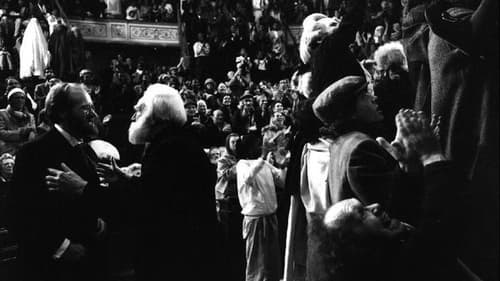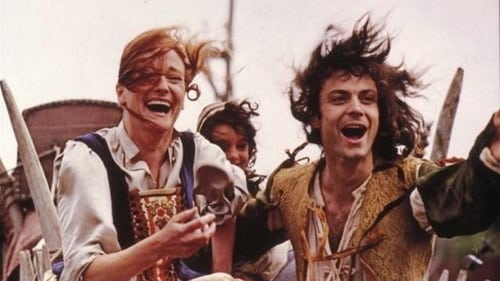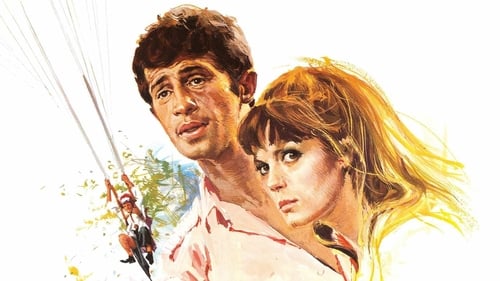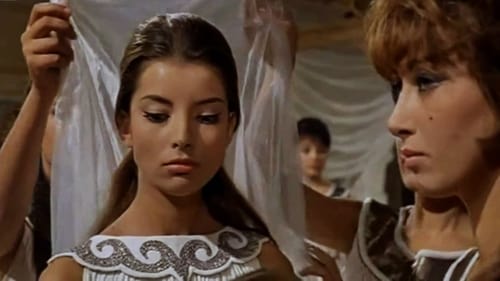Ariane Mnouchkine
Рождение : 1939-03-03, Paris, France

In the spring of 2016, for the first time in 54 years, Ariane Mnouchkine entrusts her troupe, the Théâtre du Soleil, to another director. Robert Lepage then embarks on the creation of Kanata, a work that imagines the meeting of Europeans with First Nations people in Canada over two centuries. Lepage au Soleil: The origin of Kanata shows how, the 36 comedians from 11 different countries, discover in their own stories astonishing resonance with those of the natives. How, inspired by the cosmopolitanism of comedians, Robert Lepage tries to get them to talk about their own stories through those of the natives. The documentary plunges into the heart of a theatrical creation in search of universality turned upside down by a media scandal even before its premiere.

Self
An eulogy to Giorgio Strehler, the first real director in the italian theatre. He was a master, knowing all aspects of the show, from the set techniques up to narrative influences. The documentary tells the personal life and the artistic career: it starts from that Christmas day in 1997, when the news broadcasts opened with the news of Strehler's death, to summarize the story of the Piccolo Teatro, the first municipal theatre in Italy.

Director
A film-crew in the early twentieth century, the cabaret known as ‘Le Fol Espoir’ has been transformed into an amateur soundstage. The motion picture tells the story of a ship and its passengers – from the famous opera singer down to the petty criminal. The film is an optimistic political fable intended to educate the masses. There’s comedy aplenty – slapstick punches, custard pies and gags reminiscent of Buster Keaton and Fatty Arbuckle; there’s adventure, high drama moments of great bravura , and passionate love stories. The filming begins on June 28th 1914, the day of the Archiduke Franz Ferdinand’s assassination in Sarajevo, the gunpowder that sets Europe alight. It ends with news of another assassination – that of Jean Jaures on July 31st followed by the general conscription of August 1st, heralded by church bells across France. The allegory of the shipwreck is filmed at breakneck pace during the last five weeks before war breaks out.

Self
Interviews with crew and cast from "That Man from Rio".

Director
This is a film about the rehearsing of Molière's 'Tartuffe' in 1995. Working handheld or with a stand for up to 12 hours a day, cameraman Eric Darmon became so much part of the landscape that he had a totally free hand in documenting the play's gestation, complete with director Ariane Mnouchkine's instructions, urgings and moments of uncertainty. Every action, decision, and all the tensions, elation, gaffes and bouts of craziness were filmed as they happened. And then along came editor Catherine Vilpoux, faced with 580 hours of rushes and a titanic exercise in viewing, sorting, selecting and assembling. Gradually the film took shape a shape that reflects the Théâtre du Soleil's commitment to finding the right theatrical form. Ultimately, is this a film about stage directing? About a troupe of actors? About the way actors work? About how an actor is born? About the learning process? The teaching process? The theatre? Life? Probably all of that. And an unparalleled work of its kind.

In this film, Catherine Vilpoux recounts Ariane Mnouchkine’s iconic artistic journey: her inspirations, her dreams for the theatre, her love of cinema, her unique and extraordinary bond with audiences. Extensive archival material – much of which has never been seen before – together with extracts from performances and rehearsals, as well as interviews and coverage of various tours and travels, reveal an in-depth portrait of the Théâtre du Soleil, and its artistic and political commitment both in France and internationally, for which it was awarded the International Ibsen Award in September 2009. Everyone who has seen one of Ariane Mnouchkine’s productions at the Théatre du Soleil in Paris leaves with the feeling of having been part of a tale of enchantment. A tale that is larger than life but at the same time reveals life.

Director
Le Dernier Caravanserail (Odyssées) is a series of stories, scraps of destinies, bits of the lives of men and women – of those "refugees", "illegals" and "migrants" who term themselves, with greater dignity, "travellers". This is a veritable ocean of time-battered odysseys, sometimes heroic, sometimes commonplace, and always dramatic. Initially a work for the theatre, Le Dernier Caravanserail (Odyssées) is now a film. A whole new artistic adventure using the cinema to bring even greater depth to the virtually inexhaustible original material, and intended above all to keep the promise made to those whose stories we are telling: to give them a hearing.

Screenplay
Based on the play by Hélène Cixous, filmed in 2002, Tambours sur la Digue is a story written by Hélène Cixous based on an ancient Asian fable about who shall be saved during a flood and presented by live actors as puppets and puppeteers, evoking the theatrical traditions of Japanese Noh and bunraku.

Director
Based on the play by Hélène Cixous, filmed in 2002, Tambours sur la Digue is a story written by Hélène Cixous based on an ancient Asian fable about who shall be saved during a flood and presented by live actors as puppets and puppeteers, evoking the theatrical traditions of Japanese Noh and bunraku.

Director
To celebrate the bicentennial of the French revolution, an exposition of mannequins representing the deputies brought together in 1789 to discuss the Declaration of the rights of man, is held in the the French National Assembly. The mannequins come to life suddenly and are joined by other historical figures who fought for human rights.

Writer
Jean-Baptiste Poquelin is raised by his father and his grandfather because his mother dies when he's still very little. He works as a handyman, studies the law at a university and travels the country as an actor before he becomes the celebrated playwright Molière who impresses firstly the Duke of Orleans and then even King Louis XIV.

Director
Jean-Baptiste Poquelin is raised by his father and his grandfather because his mother dies when he's still very little. He works as a handyman, studies the law at a university and travels the country as an actor before he becomes the celebrated playwright Molière who impresses firstly the Duke of Orleans and then even King Louis XIV.

Writer
Recording of the play 1789, a collective creation by Théâtre du Soleil at La Cartoucherie de Vincennes in 1970, edited from several shows.

Director
Recording of the play 1789, a collective creation by Théâtre du Soleil at La Cartoucherie de Vincennes in 1970, edited from several shows.

Writer
Похищена бесценная индейская статуэтка, а вместе с ней и дочь хозяина сокровища — красавица Аньес. Жених девушки Адриан отправляется в погоню за похитителями. Он не представляет, какие испытания его ждут впереди…

First Assistant Director
An evil king makes a bargain with a devil in order to get away with murdering his wife.













